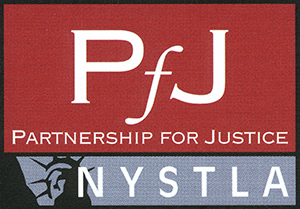U.S. Department of Justice Releases Details of Rapamune Kidney Transplant Drug Settlement Case against Wyeth Pharmaceuticals
Posted on July 31st, 2013 by Oddo & Babat, P.C.
The marketing and sales practices of major pharmaceutical companies has been under scrutiny in the last few years. This week, the U.S. Justice Department announced that drug maker Wyeth Pharmaceuticals has agreed to a $490.9 million settlement for criminal and civil liability charges in connection with improperly marketing Rapamune, the kidney transplant drug. Wyeth Pharmaceuticals was acquired by Pfizer in 2009. According to the Press Release issued by the Justice Department on Tuesday, July 30 the drug was not approved as safe and effective by the U.S. Food and Drug Administration (FDA).
“FDA’s drug approval process ensures companies market their products for uses proven safe and effective,” said Stuart F. Delery, Acting Assistant Attorney General for the Justice Department’s Civil Division. “We will hold accountable those who put patients’ health at risk in pursuit of financial gain.”
The Federal Food, Drug and Cosmetic Act (FDCA) requires a company such as Wyeth to specify the intended uses of a product in its new drug application to the FDA. Once approved, a drug may not be introduced into interstate commerce for unapproved or “off-label” uses until the company receives FDA approval for the new intended uses. In 1999, Wyeth received approval from the FDA for Rapamune use in renal (kidney) transplant patients. However, the information alleges, Wyeth trained its national Rapamune sales force to promote the use of the drug in non-renal transplant patients. Wyeth provided the sales force with training materials regarding non-renal transplant use and trained them on how to use these materials in presentations to transplant physicians. Then, Wyeth encouraged sales force members, through financial incentives, to target all transplant patient populations to increase Rapamune sales.
The government alleged that Wyeth violated the False Claims Act, from 1998 through 2009, by promoting Rapamune for unapproved uses, some of which were not medically accepted indications and, therefore, were not covered by Medicare, Medicaid and other federal health care programs. These unapproved uses included non-renal transplants, conversion use (switching a patient from another immunosuppressant to Rapamune) and using Rapamune in combination with other immunosuppressive agents not listed on the label. The government alleged that this conduct resulted in the submission of false claims to government health care programs. Of the amounts to resolve the civil claims, Wyeth will pay $230,112,596 to the federal government and $27,287,404 to the states.
“The FDA approves drugs for certain uses after lengthy clinical trials,” said Sanford Coats, U.S. Attorney for the Western District of Oklahoma. “Compliance with these approved uses is important to protect patient safety, and drug companies must only market and promote their drugs for FDA-approved uses. The FDA approved Rapamune for limited use in renal transplants and required the label to include a warning against certain uses. Yet, Wyeth trained its sales force to promote Rapamune for off-label uses not approved by the FDA, including ex-renal uses, and even paid bonuses to incentivize those sales. This was a systemic, corporate effort to seek profit over safety. Companies that ignore compliance with FDA regulations will face criminal prosecution and stiff penalties.”
Pfizer is currently subject to a Corporate Integrity Agreement (CIA) with the Department of Health and Human Services’ Office of Inspector General that it entered in connection with another matter in 2009, shortly before acquiring Wyeth. The CIA covers former Wyeth employees who now perform sales and marketing functions at Pfizer. Under the CIA, Pfizer is subject to exclusion from federal health care programs, including Medicare and Medicaid, for a material breach of the CIA, and the company is subject to monetary penalties for less significant breaches.
Daniel R. Levinson, Inspector General, Department of Health and Human Services states “We are committed to enforcing the laws protecting public health, taxpayers and government health programs, and to promoting effective compliance programs. Our integrity agreement with Pfizer, which acquired Wyeth, includes required risk assessments, a confidential disclosure program, and auditing and monitoring to help prospectively identify improper marketing.”


 I consulted with David the first time a couple of years ago on a serious matter that affected a very close member of my family. Not expecting a good experience from this serious situation coupled with an attorney consultation, the entire thing surprised me as it was pleasant, professional, and completely successful. We found him clear, direct, generous and extremely knowledgeable throughout the process. I give my very strongest recommendation
I consulted with David the first time a couple of years ago on a serious matter that affected a very close member of my family. Not expecting a good experience from this serious situation coupled with an attorney consultation, the entire thing surprised me as it was pleasant, professional, and completely successful. We found him clear, direct, generous and extremely knowledgeable throughout the process. I give my very strongest recommendation








